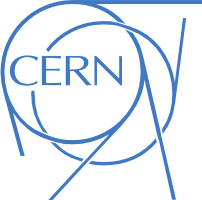
Junior Network System Engineer (EP-CMD-2024-201-GRAE)
vor Gesendet 12 Stunden Auswahlliste E-Mail JobJob Detail
-
Job-ID 339033
Job-Beschreibung
Job DescriptionYour responsibilitiesWe are excited to invite a motivated Network System Engineer to join our team and contribute to innovative projects. This role offers a unique opportunity to work with state-of-the-art networking equipment and help shape the future DAQ (Data Acquisition) system for the CMS experiment at CERN.CMS, one of two general-purpose particle physics experiments at CERN’s Large Hadron Collider (LHC), relies on a sophisticated DAQ system to aggregate and process collision data. Looking ahead to the High Luminosity LHC upgrade (2029), you’ll help design a high-speed Ethernet-based network capable of managing 1,000 100Gb/s sources, aggregating to 200 nodes at 400Gb/s, and forwarding data to thousands of processing nodes.If you’re passionate about networking and want to make a lasting impact, we’d love to hear from you!Responsibilities:
- Work with Cutting-Edge Network Equipment: Gain hands-on experience with state-of-the-art network technology and contribute to the design of the future DAQ network system.
- Install and Maintain the 400GE Test System: Set up and support the 400GE test system for the next-generation DAQ network.
- Perform Network Testing and Equipment Qualification: Conduct tests and qualify equipment to ensure compliance with DAQ requirements.
- Advance Network Monitoring Systems: Maintain and enhance both current and future network monitoring for seamless operations.
- Support Daily Operations: Perform regular monitoring and inspections to keep the data network at peak performance.
- Develop Tools for Network Analysis: Create and maintain tools for network measurement and performance analysis using C and Python.
- Collaborate and Share Expertise: Present results and collaborate within CERN and across the wider community.
Your profileSkills
- Enthusiasm for learning new technologies and a collaborative approach to problem-solving
- Knowledge of communication technologies and protocols, including network switching, routing, DHCP, and DNS…
- Proficiency in the Linux operating system, particularly in network configuration and the ability to run network testing
- Experience in analyzing and debugging network systems
- Proficiency in C programming; experience with Python is a plus
- Previous experience with High-Performance Computing (HPC) or DAQ systems is a plus
- Relevant certifications in networking or telecommunications is a plus
- Experience with containers (e.g. Docker, Kubernetes) is a plus
- Understanding of the Linux kernel is a plus
- Fluent in English, the ability to work in French would be an advantage.
Eligibility criteria:
- You are a national of a
. * By the application deadline, you have a maximum of two years of professional experience since graduation in Network or software engineering (or a related field) and your highest educational qualification is either a Bachelor’s or Master’s degree.
- You have never had a CERN fellow or graduate contract before.
- Applicants without University degree are not eligible.
- Applicants with a PhD are not eligible.
Additional InformationJob closing date: 28.01.2025 at 23:59 hrs CET.Contract duration: 24 months, with a possible extension up to 36 months maximum.Working hours: 40 hours per weekTarget start date: 01-March-2025This position involves:
- Interventions in underground installations.
- A valid driving licence.
Job reference: EP-CMD-2024-201-GRAEField of work: Software Engineering and ITWhat we offer
- A monthly stipend ranging between 5134 and 5647 Swiss Francs (net of tax).
- Coverage by CERN’s comprehensive health scheme (for yourself, your spouse and children), and membership of the CERN Pension Fund.
- Depending on your individual circumstances: installation grant; family, child and infant allowances; payment of travel expenses at the beginning and end of contract.
- 30 days of paid leave per year.
- On-the-job and formal training at CERN as well as in-house language courses for English and/or French.
About usAt CERN, the European Organization for Nuclear Research, physicists and engineers are probing the fundamental structure of the universe. Using the world’s largest and most complex scientific instruments, they study the basic constituents of matter – fundamental particles that are made to collide together at close to the speed of light. The process gives physicists clues about how particles interact, and provides insights into the fundamental laws of nature. Find out more onDiversity has been an integral part of CERN’s mission since its foundation and is an established value of the Organization. Employing a diverse workforce is central to our success.
Andere jobs, die Sie möglicherweise mögen
-

Carrosseriespengler (m/w/d)
- Uznach, St. Gallen
